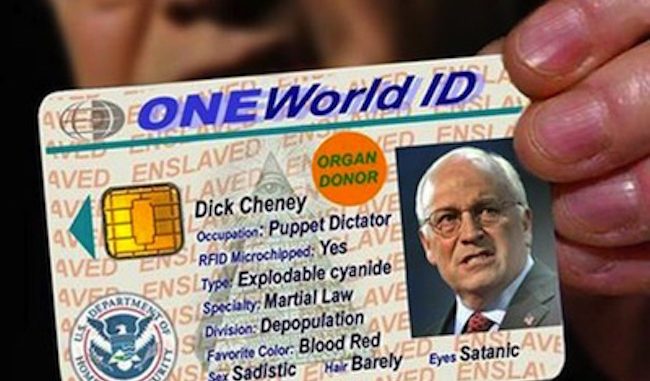
The use of biometric national identity cards, using rfid chip technology, is continuing to grow around the world.
One man has recently become the very first person able to board a plane due to an rfid chip implanted into his hand.

BYPASS THE CENSORS
Sign up to get unfiltered news delivered straight to your inbox.
You can unsubscribe any time. By subscribing you agree to our Terms of Use
Latest Video
Pressfortruth.ca reports:
Around the world there are various endeavors in many countries which are seeking to promote rfid technology and biometric identification.
According to a report in 2014 by Acuity Market Intelligence, it was estimated that in five years, roughly half of the world population will be registered with national biometric identification cards.
The program has already been well underway in many countries for years now and it continues to grow.
In India, they have a national ID program known as the Aadhaar Initiative, and this national registry contains the biographic and biometric data on every enrolled citizen. Participation in the program is voluntary, and one of the benefits that has been attracting citizens to sign-up is the promise of universal health care. The program has been collecting biometric data on the face, iris, and fingerprint of those who join. There are extensive national fingerprint databases also within South Africa, Home Affairs National Identification System (HANIS) headed by the NEC Corporation. It is claimed that HANIS was implemented in an attempt to move away from the paper system, instead replacing it with a digital database. Various police agencies have also implemented biometric systems to record the finger and palm prints of convicted criminals, along with iris scan.
National biometic identification is also promoted in Afghanistan, by Ideal Innovations, Inc. According to a 2011 FBI report, the Afghanistan Ministry of the Interior had said that he planned on enrolling at least 8 million citizens in its national ID program. The government in Afghanistan first announced its plans previously in 2009, that they sought to establish a national biometric identification database. There has also been a push in Israel for the same. Their biometric national ID card program, which could soon become mandatory for citizens. The Biometric Database Law was an Israeli law passed back in 2009 that declared fingerprints and facial contours of all Israeli residents to be collected, looking to establish a biometric government database of all citizens and residents. Saudi Arabia is another country that’s also implemented the same, and many others if they haven’t already will look to do so in the near future. Canada has its own version of the biometric identification system, NEXUS, which has been operational for years now and still remains voluntary.
Biometric identification has been used heavily at refugee camps around the world. The United Nations High Commissioner for Refugees (UNHCR) biometric identity management system is said to be used to “better serve” refugees. This program seeks to identify the bio-identification of all displaced persons around the world. The program first started in a refugee camp in Malawi and has since grown to many other refugee camps and countries, it already includes hundreds of thousands of individuals. It is said that this biometric identification method could be a solution to the ongoing refugee crisis.
National ID cards and databases are the cornerstone of government surveillance. And now that many countries have implemented national identification systems, they are looking to integrate biometric identification as well into the database. Could it be only a matter of time until these programs become mandatory and require the biometric identification of all?
Critics argue that collecting this sensitive information poses great risks to privacy and individual freedom. Not only that, but it can pose risks given that the information has the potential to flow through various government and private sector agencies. If national identification cards requiring biometric data become mandatory, then people could potentially lose their jobs, be denied the right to purchase property or make exchanges in the market, open a bank account, rent an apartment, or receive government benefits, unless they give the information required.


